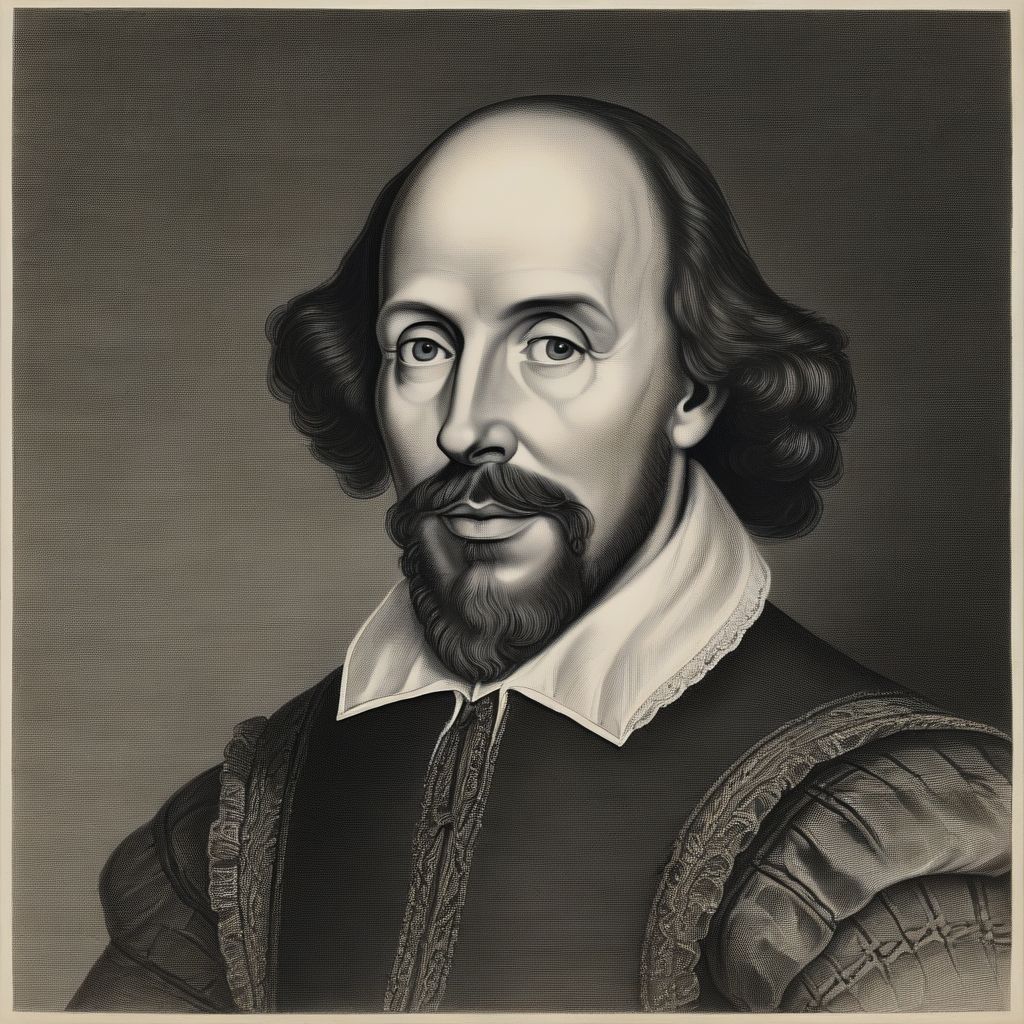“All the world’s a stage,” penned Shakespeare, and for centuries, his words have resonated across that stage, shaping literature, theatre, and even our everyday language. But who was the man behind the immortal words? What shaped his life, and how has his work continued to captivate audiences and readers centuries after his death? Let’s delve into the fascinating life and enduring legacy of William Shakespeare.
Early Life and Education in Stratford-upon-Avon
William Shakespeare was born in Stratford-upon-Avon, England, in April 1564, baptized on April 26th. While the exact date of his birth remains unknown, it is traditionally celebrated on April 23rd, which also happens to be the date of his death. His father, John Shakespeare, was a glover and leather merchant, and his mother, Mary Arden, came from a prominent landowning family. This relatively comfortable upbringing afforded Shakespeare a grammar school education where he likely studied Latin, Greek, and classical literature, laying the foundation for his future literary pursuits.
Marriage and Family Life
At the age of 18, Shakespeare married Anne Hathaway, who was eight years his senior. They had three children: Susanna, and twins Hamnet and Judith. Hamnet tragically died at the age of 11, a loss that some scholars believe may have influenced some of Shakespeare’s later works, particularly Hamlet.
The Lost Years and the London Theatre Scene
The period between 1585 and 1592 is often referred to as Shakespeare’s “lost years,” as there is little documented evidence of his activities during this time. Various theories abound, from his working as a schoolteacher to his involvement in deer poaching. What is certain is that by the early 1590s, Shakespeare had emerged onto the vibrant London theatre scene.
The Lord Chamberlain’s Men and The Globe Theatre
Shakespeare became a shareholder in the Lord Chamberlain’s Men, a leading acting company in London, and later, under the patronage of King James I, the company became the King’s Men. He wrote plays for the company, acted in them, and eventually became a part-owner of the Globe Theatre, a legendary open-air playhouse.
Shakespeare’s Literary Genius
Shakespeare’s prolific career spanned roughly two decades, during which he wrote approximately 39 plays, 154 sonnets, and two long narrative poems. His plays are categorized into tragedies, comedies, histories, and problem plays, each showcasing his remarkable understanding of human nature, his mastery of language, and his unparalleled ability to craft compelling narratives.
Tragedies: Exploring the Depths of Human Suffering
Shakespeare’s tragedies, such as Hamlet, Othello, King Lear, and Macbeth, delve into the darkest aspects of human experience, exploring themes of ambition, betrayal, jealousy, and revenge. These plays remain timeless because they grapple with universal human emotions and moral dilemmas that continue to resonate with audiences today.
Comedies: Celebrating Love, Laughter, and Mischief
In contrast to the gravity of his tragedies, Shakespeare’s comedies, such as A Midsummer Night’s Dream, Much Ado About Nothing, and Twelfth Night, offer witty dialogue, playful misunderstandings, and ultimately, the triumph of love and happiness. They provide a glimpse into the lighter side of Elizabethan life and continue to entertain audiences with their clever wordplay and comedic situations.
Histories: Chronicling the Kings and Queens of England
Shakespeare’s history plays, including Richard III, Henry V, and the Henry IV plays, dramatize the lives and reigns of English monarchs. While not always historically accurate, these plays offer insights into the political intrigues and power struggles of the time and explore the complexities of leadership and the consequences of ambition.
Problem Plays: Challenging Conventional Genre Boundaries
Shakespeare’s problem plays, such as Measure for Measure and All’s Well That Ends Well, defy easy categorization. They blend elements of tragedy and comedy, raising complex moral questions and exploring ambiguous characters and situations that resist simple resolutions.
The Enduring Legacy of the Bard
Shakespeare’s influence on literature and the English language is immeasurable. He coined countless words and phrases that have become ingrained in our everyday vocabulary, and his plays continue to be performed and studied around the world. His works have inspired countless writers, artists, and musicians, and his characters and themes continue to be reinterpreted and reimagined in new and exciting ways.
 William Shakespeare Portrait
William Shakespeare Portrait
Conclusion: A Timeless Voice
From the humble beginnings in Stratford-upon-Avon to the heights of theatrical success in London, Shakespeare’s life and work have left an indelible mark on the world. His plays and poems continue to speak to us across the centuries, exploring the timeless themes of love, loss, ambition, and the human condition. Shakespeare’s legacy is not just confined to the stage or the page; it lives on in our language, our culture, and our collective imagination. What are your favorite Shakespearean plays or characters? Share your thoughts in the comments below!



